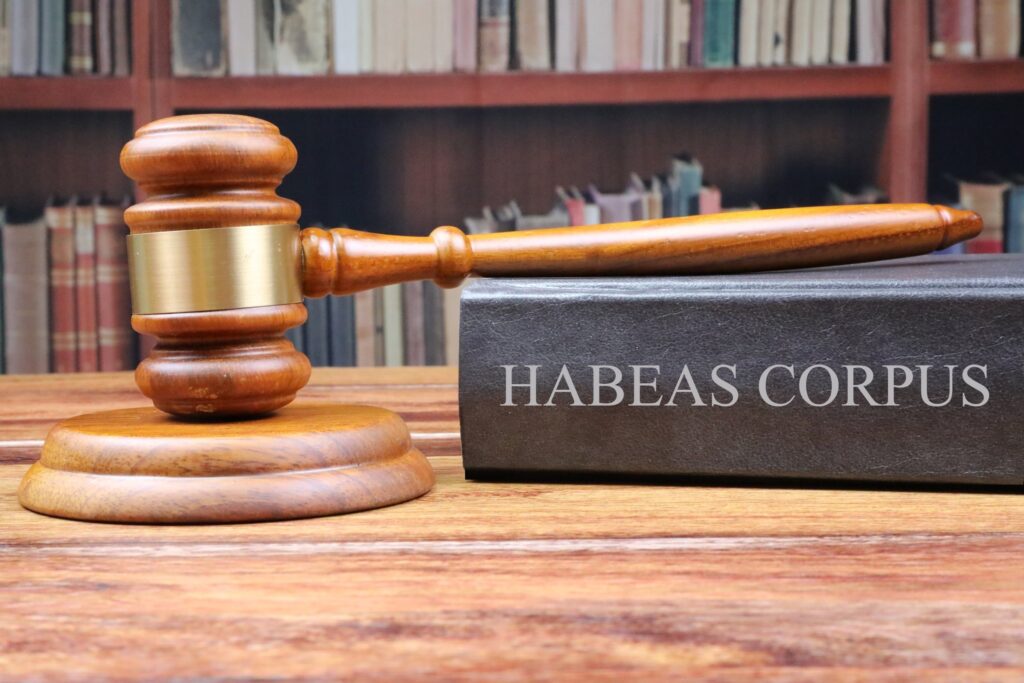Why You Need a Lawyer for Your Habeas Corpus Instance
Why You Need a Lawyer for Your Habeas Corpus Instance
Blog Article
Understanding the Role of a Post-Conviction Lawyer in Seeking Justice After a Criminal Conviction
In the complicated landscape of post-conviction legal proceedings, the role of a post-conviction lawyer is crucial in browsing the course to justice after a criminal conviction. Past the boundaries of a test, these lawyers participate in a diverse approach focused on uncovering new proof, tough legal errors, and supporting for their customers' legal rights. The complexities of post-conviction work call for a blend of legal acumen, investigative abilities, and tactical believing to unravel the intricacies of a situation and pursue methods that may have been forgotten or underexplored. As the quest of justice extends past the confines of initial process, the role of a post-conviction legal representative becomes a beacon of hope for those seeking to remedy oppressions and reclaim their civil liberties within the lawful system.
Post-Conviction Lawyer's Investigative Work
Post-conviction legal representatives engage in meticulous investigatory job to uncover brand-new proof, procedural mistakes, or misbehavior that could potentially bring about reversing a conviction. This investigatory stage is important in the post-conviction process as it intends to determine any kind of ignored details or lawful mistakes that may have influenced the result of the first trial. Post-conviction lawyers explore case files, witness testimonies, and lawful paperwork with a fine-tooth comb, searching for any kind of inconsistencies or abnormalities that might be premises for appeal.
Via detailed investigation, post-conviction legal representatives aim to clarify potential oppressions that may have happened during the initial trial. They might conduct interviews, seek advice from experts, and testimonial forensic evidence to develop an engaging case for their customers. By scrutinizing every facet of the lawful proceedings, post-conviction lawyers function tirelessly to discover any kind of factors that might have influenced the judgment. Ultimately, their investigative job plays a pivotal role in the quest of justice and the possible reversal of wrongful convictions.
Crafting Appeals and Petitions
In the search of justice after a sentence, competent legal representatives meticulously craft appeals and requests to present compelling disagreements for the reconsideration of legal choices. Crafting charms and requests needs a deep understanding of the legal system, interest to detail, and calculated thinking. Post-conviction attorneys examine trial records, identify potential errors or violations of legal rights, and develop legal arguments to test the sentence or sentence.
When crafting an allure, legal representatives concentrate on highlighting lawful errors that may have impacted the result of the case. They research instance regulation, laws, and legal precedents to sustain their debates. Petitions, on the other hand, might include presenting new proof that was not offered during the trial or showing modifications in the legislation that necessitate a testimonial of the conviction.
Moreover, post-conviction legal representatives have to follow rigorous step-by-step regulations and target dates when submitting allures and petitions. They have to provide their disagreements clearly and persuasively to convince the court to approve relief to their customers. With precise crafting of allures and requests, post-conviction lawyers make every effort to protect justice for people who have been wrongfully founded guilty or unfairly punished.

Seeking Post-Conviction Alleviation
Post-conviction alleviation incorporates a variety of legal devices created to challenge the validity of a conviction or sentence. Post-conviction legal representatives play a critical function in navigating these intricate procedures, ensuring that all lawful options are discovered to remedy oppressions that might have occurred throughout the trial or sentencing stage.
One common type of post-conviction alleviation is submitting a petition for post-conviction relief, usually based on cases of inadequate assistance of counsel, prosecutorial misbehavior, recently discovered evidence, or constitutional infractions. Experienced post-conviction legal representatives have the abilities and expertise necessary to recognize viable legal claims, conduct examinations, and present compelling arguments to secure relief for their clients.
Utilizing Forensic Proof
When testing a sentence or sentence, the critical application of forensic proof can be an effective device in post-conviction lawful procedures. Forensic proof includes a variety of scientific techniques used to explore crimes and develop realities in court. Post-conviction lawyers can leverage forensic proof to test the legitimacy of sentences by providing new clinical searchings for that were not offered during the initial trial.

Participating In Sentence Modifications
Post-conviction lawyers may explore the opportunity of sentence adjustments as a lawful method to attend to out of proportion or unfair sentences bied far in criminal here are the findings situations. Sentence adjustments include seeking changes to the regards to an offender's sentence after a conviction has actually happened. These adjustments can include reducing the length of a sentence, modifying the kind of penalty imposed, or exploring different sentencing alternatives.
Post-conviction attorneys can go after sentence adjustments through various lawful systems, such as filing activities for sentence decrease, appealing for caring release, or negotiating appeal offers for reduced sentences. They need to very carefully evaluate the circumstances of the instance, examine the legal premises for seeking a modification, and existing compelling debates to the court sustaining the need for a revised sentence.
Involving in sentence adjustments requires a thorough understanding of criminal regulation, sentencing standards, and the particular treatments associated with looking for post-conviction relief. Post-conviction legal representatives play a critical role in supporting for reasonable and simply results by challenging sentences that are unduly extreme or do not align with the concepts of justice.
Conclusion
In final thought, the role of a post-conviction attorney is crucial in looking for justice after a criminal sentence. Through investigatory job, crafting appeals and applications, seeking post-conviction alleviation, utilizing forensic evidence, and participating in sentence modifications, these legal specialists play an important role in promoting for their customers and guaranteeing that their civil liberties are upheld within the criminal justice system. Their commitment and proficiency are necessary in navigating the complexities of post-conviction procedures and attaining a reasonable outcome for individuals encountering criminal convictions.
Report this page